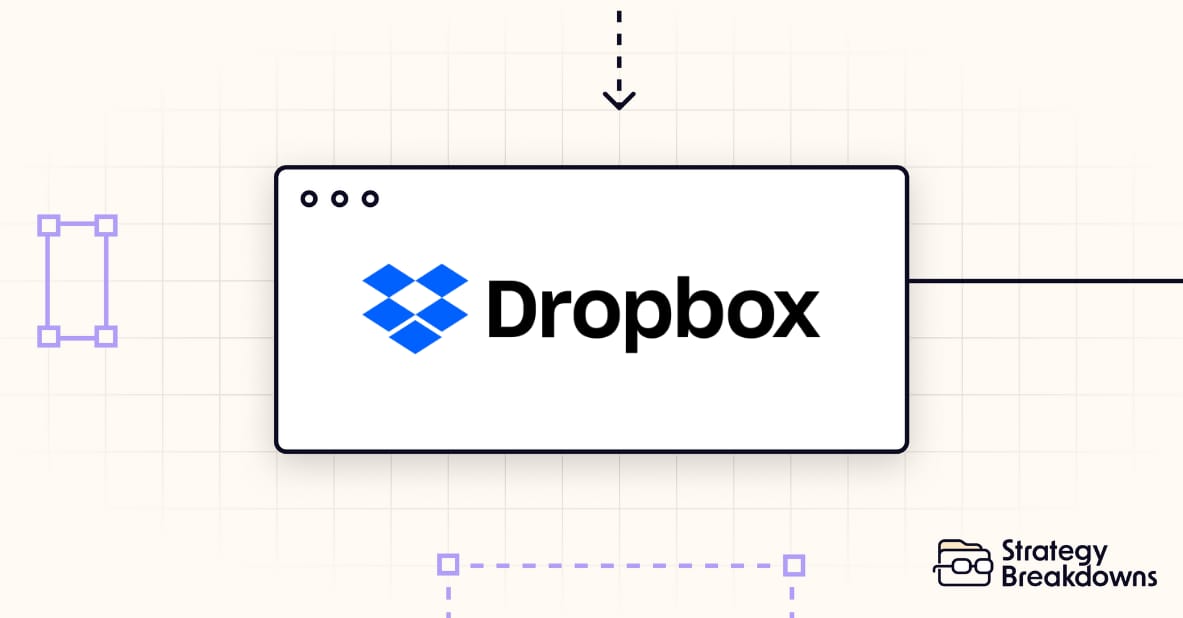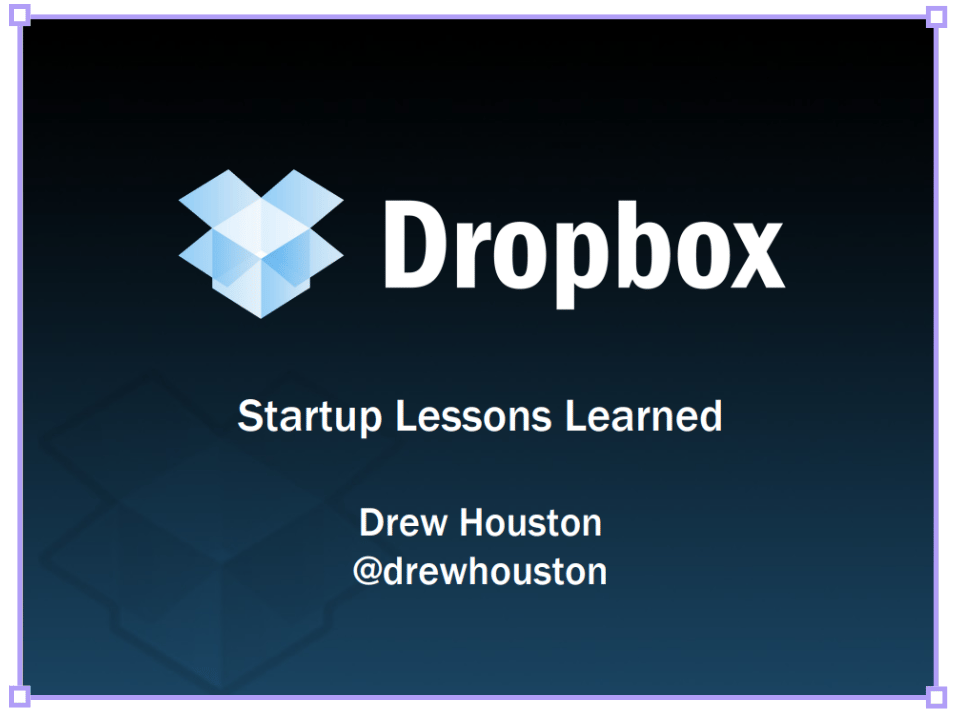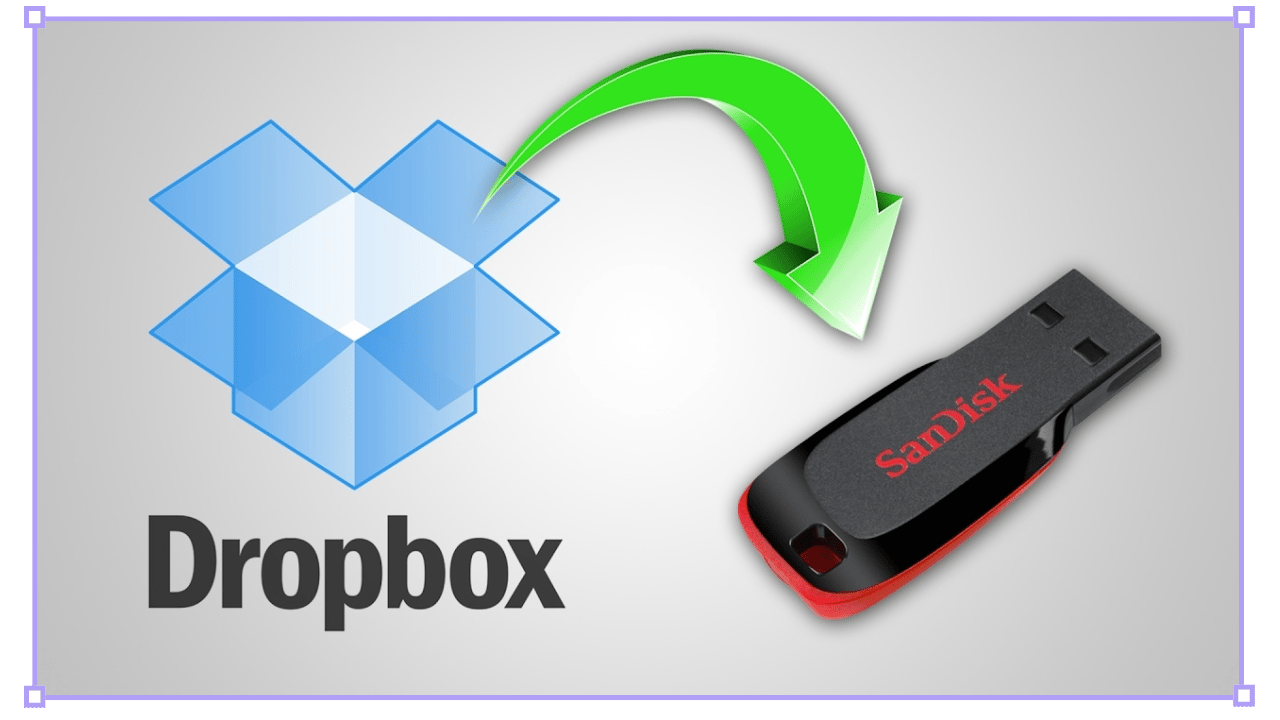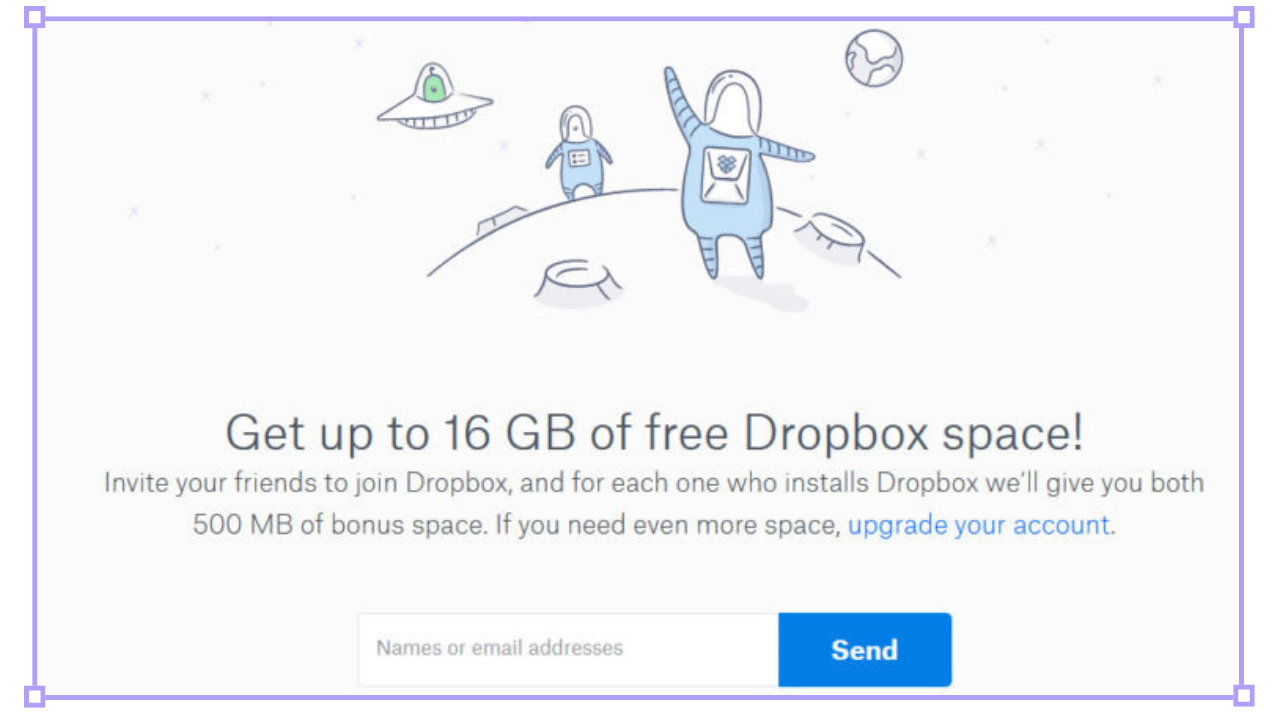Read time: 4 minutes 23 seconds

Fun Fact #2: Dropbox was the fastest SaaS company to reach $1b ARR (at the time).
Fun Fact #3: I write back to every email, so reply to this email with your ideas / qualms / dreams and let’s jam.
— Tom


Attio is a radically new CRM for the next era of companies.
Onboarding into Attio is so frictionless and intuitive, everything is ready in just a few clicks.
Step 1 → Sign in with your existing Gmail account
Step 2 → Answer a few questions about your intended use
Step 3 → Watch Attio magically create a populated CRM, fully configured to your specific use case with:
Every person / company you’ve ever emailed or had meetings with.
Every profile enriched with hundreds of data points around their website, fundraising, revenue, etc.
Every record and interaction kept automatically up to date.
Don’t just take our word for it.
Have you ever second-guessed your product roadmap, wasted time getting leadership on the same page, or experienced mental drain from having ideas and customer feedback scattered across different tools?
Join the ranks of successful product teams who use Jira Product Discovery to prioritise, align, and deliver their best ideas with confidence.
Thank you for supporting our sponsors, who keep this newsletter free.



Chess Move
The what: A TLDR explanation of the strategy
In 2009, Dropbox grew from 100,000 users to 4 million in just four months.
The referral program accounted for 35% of their daily signups.
By April 2010, Dropbox users were sending 2.8 million invites to other people per month.
Roughly 1 invite per second. Every second. Each requiring zero incremental effort from Dropbox.
It passed 50 million users in October 2011, 100 million in November 2012, 500 million in 2016, and 700 million in 2021.
Arguably the most successful referral strategy in history.
Today, the specific user journeys, incentives, and experiences Dropbox pioneered have become the industry standard template for SaaS referral programs.

💡
Strategy Playbook: Make it a no-brainer for your users to invite their friends.

With this strategy, the devil is in the detail. The psychology, scalability, and timing of what you choose to put in front of users matters.
Here are the exact mechanics Dropbox used, for you to consider when architecting your own referral program:


Breakdown
The how: The strategic playbook boiled down to 3x key takeaways
1. Incentivise sharing, onboarding, and usage
The virality of Dropbox’s referral program can be understood as a carefully constructed layering of incentives.
Incentive #1: Make the product better when people share it
Dropbox offered 250mb of extra storage space to any user who invited a friend, once that friend created an account.
The core value of Dropbox is cloud storage, so offering more storage to referrers tangibly improved their experience with the product.
With more space, they were more likely to stay as an active user, meaning the referral program drove new customer growth and improved customer retention.
Incentive #2: Reward the referrer and the referred
Originally inspired by PayPal’s double-sided $10 reward, Dropbox issued the 250mb storage bonus to both the existing user as well as the new referred user.
Existing users are more likely to refer friends and new referred users are more likely to convert.
Plus, new users joining through the referral program are more likely to become referrers themselves, creating a viral loop.
Incentive #3: Reward activations over shares
The referral rewards were only issued when referred users actually sign up and start using the product.
This encouraged referrers to be more than just net promoters who shared Dropbox on social media.
They became enthusiastic sellers who would follow-up with friends to make sure they onboarded to the product, actively pushing them down the activation funnel.
Incentive #4: Improve rewards for paid users
As a pioneering ‘freemium’ product, Dropbox offered a generous free plan, but relied on paying subscribers for monetisation.
While free Dropbox users earned 250mb of free storage per referral, up to 16gb, Dropbox Plus / Family / Professional accounts received 500mb per referral, up to 32gb.
The referral program became a product-led-growth engine for paid upgrades as well as free user growth.
2. Offer multiple frictionless ways to share
Dropbox provided various mechanisms that made it as frictionless as possible for users to invite their friends, at scale.
Bulk invite contacts:
Enter email credentials
Automatically pull contacts from Gmail, AOL, Hotmail, or Yahoo
Select contacts to bulk invite without leaving Dropbox
Invite individual email addresses:
Copy-paste email addresses
Send invites multiple invites with 1-click
Share on social media:
Pre-written post
Authenticate with Facebook or Twitter credentials
Instantly share with your entire network
Unique invite link:
1-click to copy link
Manually share with friends

The referred user was greeted with an equally frictionless journey to rapidly sign up to the app:
→ Email is personalised with the referrers name in the Subject Line and email body
→ Details on bonus reward for being referred
→ Single CTA to ‘Accept invite’ and land on signup page
→ Landing page personalised with referrers name
→ Email field of the signup form is pre-populated
→ 1-click to ‘Sign up for free’
No unnecessary info, clicks, or screens that might increase drop-off.
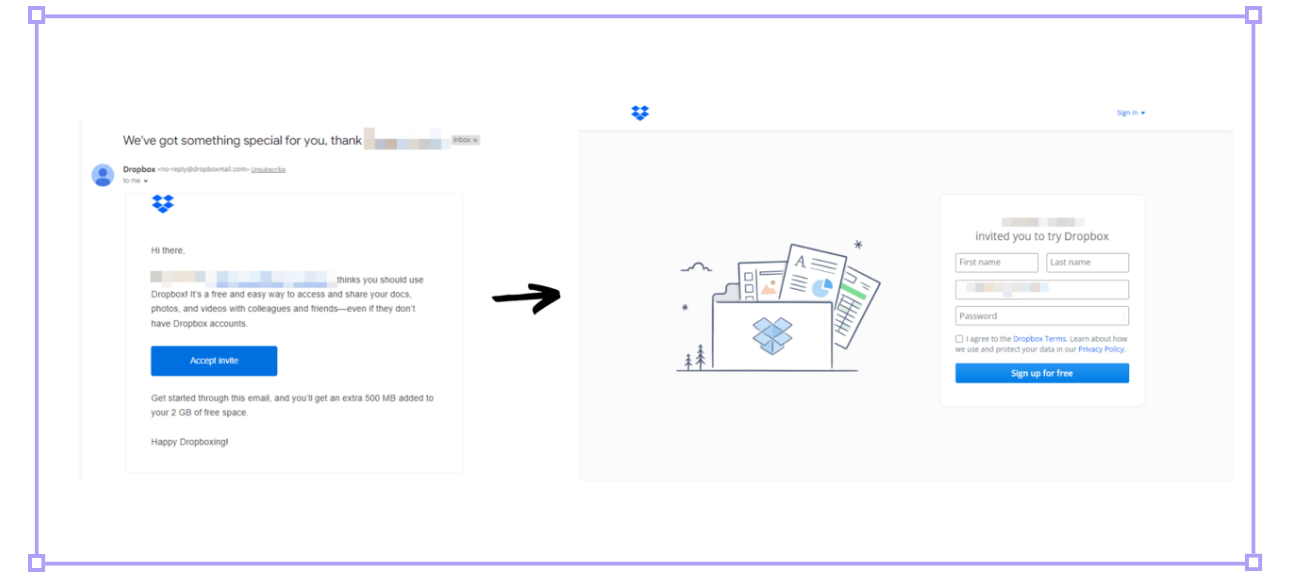
3. An integrated experience, not an afterthought
Dropbox leverages various tactics and touchpoints to make its referral program as visible as possible throughout the user journey.
Onboarding: When new users sign up to Dropbox, they are introduced to the program as one of the onboarding steps.
→ Even if the user doesn’t refer right away, they are at least made aware of the program, so will remember it when the time is right.
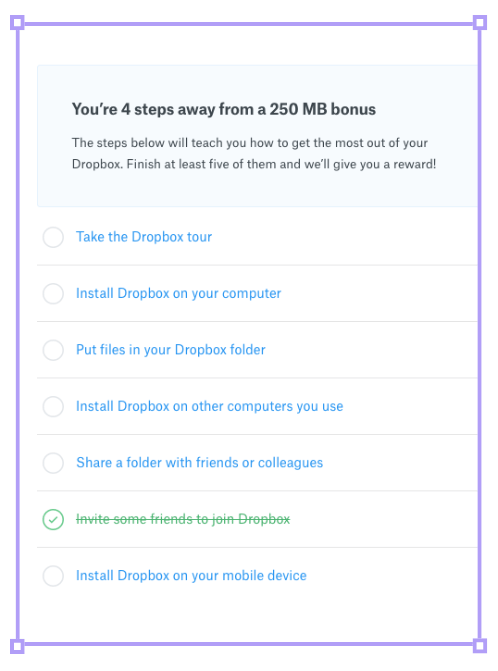
Running out of space: Users are reminded that they can get free extra storage when they are close to using up their current limit.
→ Timing the CTA when user intent is high.

Tracking dashboard: Dropbox provides users with a panel, accessible at any time, to see how their invites have performed and how much space they have earned in total.
→ Detailed status tracking incentivises users to follow up with whoever they’ve invited.
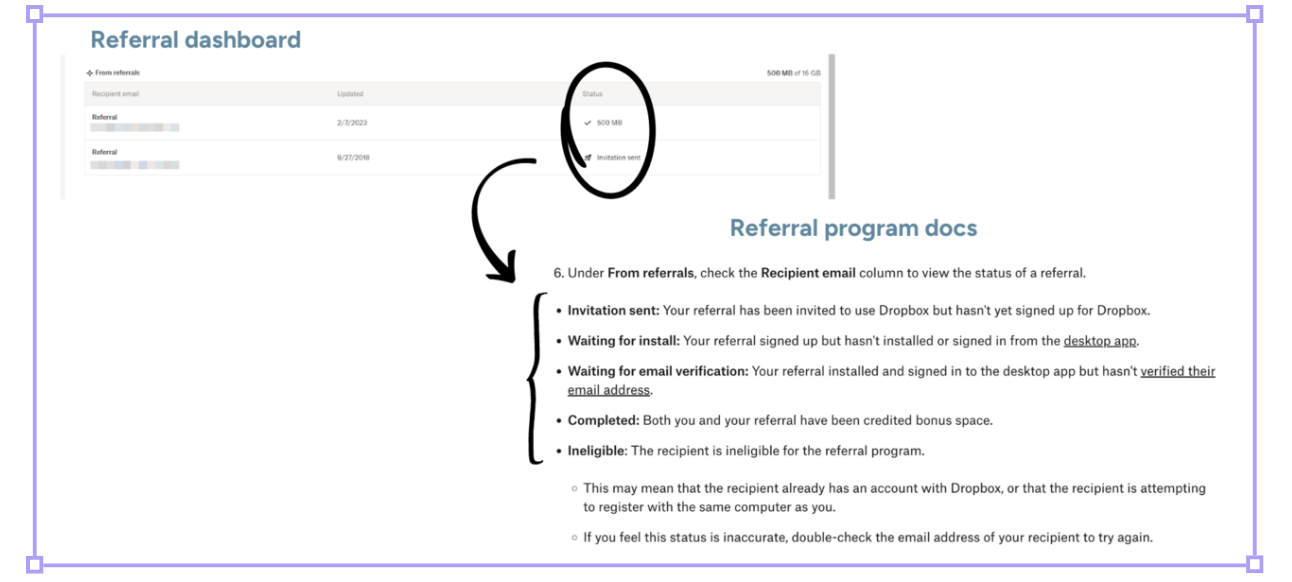
Core usage: Dropbox was engineered to be viral - when users share a file with someone who is not a Dropbox user, the recipient is invited to open an account.
→ Even without actively participating in the referral program, users become referrers just by using the product ordinarily.
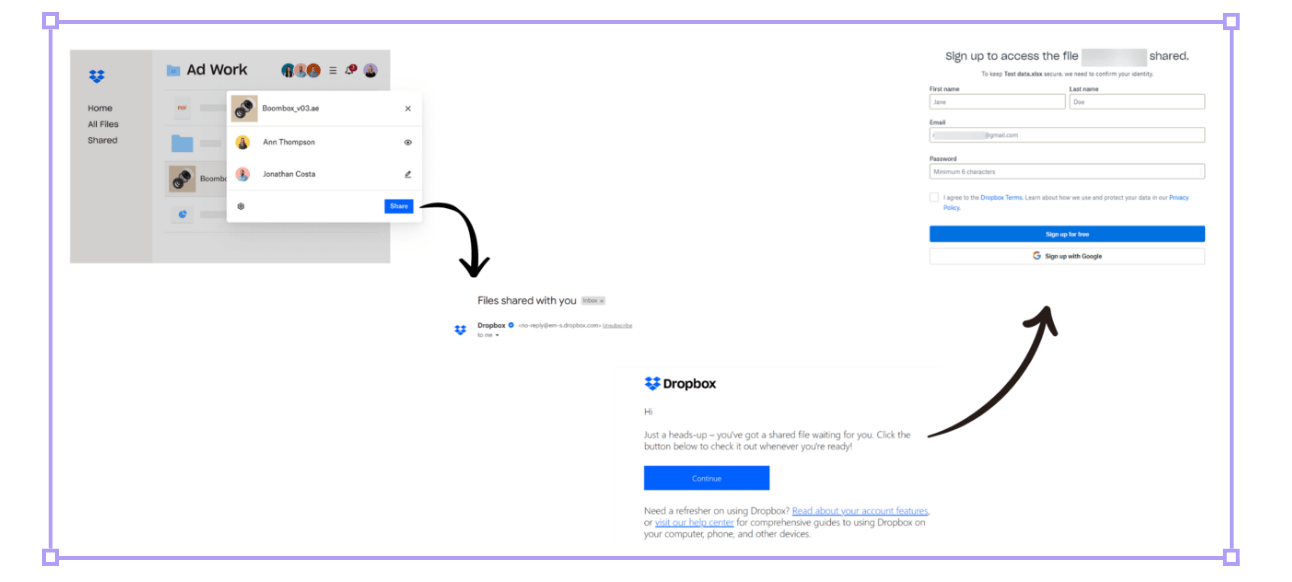


Rabbit Hole
The where: 3x high-signal resources to learn more
[4 minute read]
Drew Houston, co-founder and CEO of Dropbox, prepared this slideshow “Startup Lessons Learned” in April 2010.
It’s since become a canonical Silicon Valley artefact, detailing exactly how to avoid (1) building something no one wants, and (2) relying on Google or Facebook ads for growth.
[19 minute read]
The original HackerNews post for Dropbox’s Y Combinator Application.
Fresh from 2007.
Plus, the now-legendary comment thread: “I have a few qualms with this app: For a Linux user, you can already build such a system yourself quite trivially by getting an FTP account, mounting it locally with curlftpfs, and then using SVN or CVS on the mounted filesystem”
[4 minute read]
“The first documented referral program was created by Julius Caesar, who in 55 BC would pay his soldiers 300 sestertii (something like a third of their annual pay) to refer a friend to join the army.”
Today, referral programs are still one of the most powerful acquisition strategies.
Here’s the framework that legendary a16z investor Andrew Chen recommends using to design yours:
Ask → Target → Incentive → Payback
That’s all for today’s issue, folks!
If you liked today’s edition, you’ll love following along on Twitter [@tomaldertweets] and LinkedIn [/in/tom-alder]
Don’t forget to check out today’s sponsors Attio and JPD. We use and love both tools here at Strategy Breakdowns.
Thanks for being here.
— Tom Alder


Whenever you're ready, there are 3 ways we can help you:
Our flagship course on how to use free internet data to make better strategic decisions. Contains 5 years of strategy expertise, proven methods, and actionable tactics to accelerate your career with modern-day strategy skills.
We have a growing audience of 55,000+ strategists from top companies like Google, Meta, Atlassian, Stripe, and Netflix. Apply to feature your business in front of Strategy Breakdowns readers.
One of the most common questions we get asked is: “What tools do you use to run Strategy Breakdowns?” So, we’ve open-sourced our tech stack to give you an inside-look at exactly what tools we’re using to power each corner of this operation.



